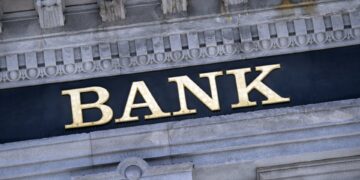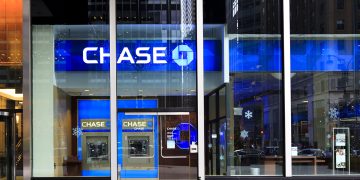In 2008, the Congress of Racial Equality established its Financial Literacy Choice and Awareness campaign to illuminate the importance of family finances for the minority community. More than a decade later, the COVID-19 pandemic has disrupted so many industries, including banking, which could create opportunities in crisis for our community.
In-person restrictions have accelerated the drive away from brick-and-mortar banks to mobile apps, while increasing investment in technology and new ways of thinking about how we carry out retail financial services. Civil rights organizations such as ours have been advocates for the building of new structures that can provide financial opportunity for the historically underserved and unbanked customers — particularly communities of color.
For generations, Black and Brown Americans have faced greater obstacles than their fellow citizens when it comes to banking, whether that means securing a loan, opening an account, accessing a line of credit or even finding an ATM. We have been the disproportionate victims of predatory lenders, unscrupulous payday loan operators and bias in lending practices. So as the financial services industry begins to think differently about access and equity, the posture of our communities is rightly “trust, but verify.” It is not enough to simply speak platitudes about racial justice and creating new opportunities for the unbanked — the real question is how these companies operationalize this work. And when you look past the press releases and look at the actual practices of companies on the ground, it is not always so pretty.
Take Chime, a new online bank that has generated headlines and a $14.5 billion market valuation on the promise of its new model and through partnerships with celebrity investors such as Mark Cuban. Chime aims at providing a product for these exact underserved communities. On its website, Chime states that its “mission is to make financial peace of mind a reality for all Americans. We strive to be a force for good in the banking industry and beyond by living by our values alongside our banking partners.”
Yet, as Axios recently reported, Chime derives an astonishing 21 percent of its revenue per user from out-of-network ATM fees. These $2.50 per transaction charges, like many other bank fees, disproportionately affect lower-income communities and people of color. In a recent Bankrate.com survey, black customers reported spending an average of $12 per month on bank charges, compared to just $5 per month for white customers. If Chime users do not have easy access to fee-free ATMs, especially in a pandemic that has severely restricted mobility, these fees can be crippling.
Despite not charging monthly or overdraft fees, Chime’s reliance on ATM fees indicates the company is taking advantage of its own customers’ lack of in-network ATM access.
And then there’s Chime’s new partnership with 21 Savage. The Atlanta rapper now smiles widely on Chime’s community page, where he promotes financial literacy for underserved communities.
I applaud anyone’s efforts to promote financial literacy, but this rapper is the last person who we should be holding up as a role model. In a recent GQ profile, he said proudly and with no remorse: “I used to rob the hell out of everybody … If you had it, if it was worth something, I’d take it.” His 2018 song “ASMR” contained the anti-Semitic lyric, “We been gettin’ that Jewish money, everything is Kosher.”
Chime thinks that it can attract the Black and Brown communities to its bank — and out-of-pocket ATM fees — with a shiny object like a gangster rapper.Thankfully, Black and Brown communities know better.
Chime’s stated public mission — like that of many other banks in this moment — is admirable. There is a clear need for both non-physical banking services and financial literacy among many American communities. But we can and should demand more from them and others purporting to fill this gap in the market. The company should work on fixing the flaws with its product, employing better role models from within local communities and implementing fee-free ATM access across larger networks. Millions of Americans are counting on it.
Niger Innis is the national chairman of the Congress of Racial Equality (CORE). He writes from North Las Vegas.







